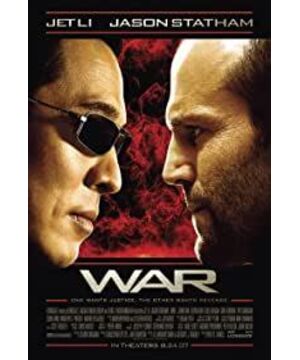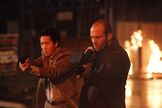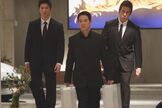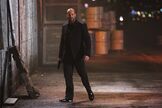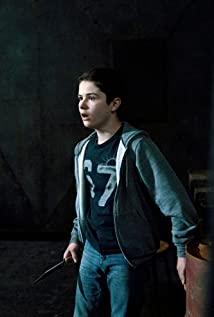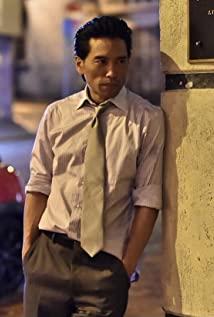The movie combines the spirit of the ancient Chinese ranger with the judicial conditions of today's society, expressing a kind of worry and vision, and has a strong idealistic color. Among crime movies, this movie is still new. Regardless of the theme or the main characters, it is reminiscent of ancient heroes such as Lu Zhonglian. The so-called "fake your clothes, hide your body and name" is indeed very Chinese. Cultural origins.
Among the many JET LI movies, this movie has slightly more bloody shots. This has something to do with the theme of the movie. The ideological tendency of this movie is generally consistent with most of JET LI's movies. It's just that the film has a slightly different approach when it expresses the negation of gangs and violence. This movie seems to say that violence and greed bring blood and massacre. In order to save lives, people must take up knives and guns and turn violence into violence, that is, "an eye for an eye, a tooth for a tooth"; but blood is not the purpose, but just means. In the movie, JET LI played Zhang, as an FBI agent, faced with the tragic death of his wife and daughter at the hands of the underworld, and no longer has any hope for justice, so he turned to use his own methods to punish crimes and be innocent. The wife and daughter avenged themselves. This ideological tendency is in conflict with the consistent judicial spirit of Western society, and does not conform to the professional concept of being a detective. But in a sense, it is the only way to more profoundly reflect the depth of love and the depth of hate, which is the emotional and logical prerequisite for the unfolding and evolution of the entire story.
In order to achieve this goal, he launched a series of well-planned roundabout actions. The biggest and common feature of these operations is the assassination. Facing the diehards in the underworld, he was relentless, cold and ruthless, and murderous; but he played a beautiful "magic" in front of the innocent child of the gang leader Chang, and never let this innocent child look at it. To the gun; he mercilessly killed the gang leader Chang, but took great risks to protect the life of Chang’s wife and daughter; finally, while sending a warning to the daughter and accomplice of another gang leader, He sent treasures and greeting cards to the innocent mother and daughter, wishing them a new and better life. These are the warmest moments in the movie, and they are also moments that express the theme powerfully.
In the movie, JET LI's performance has not changed much, but it has definitely improved. Coldness and tenderness, hatred and love, blood and fire, have all been interpreted more appropriately. As far as performance is concerned, the most obvious feature is the contrast between indifference and passion. In the delightful act of "killing one person in ten steps, not staying for a thousand miles", the face is like frost, and the expression is as sharp and cold as a blade; when hatred and love are inspired by reality, the performance changes from introverted to ostentatious. The facial expressions are also like raging waves, which visually express the huge emotional waves in the characters' hearts. From the perspective of the character's psychological performance, JET LI continued to develop his literary and opera performance skills in this play, and in fact successfully expanded the breadth and depth of interpretation. As an attempt, it is worthy of recognition.
No matter what others think, China does not introduce it, but it is still a third-rate movie. I personally think that "The Ranger" is indeed a movie worth watching, but the ending of Jason Statham's death painted a touch of desolation on this theme. Responded to the sentence: when you come out, you always have to pay it back.
View more about War reviews


